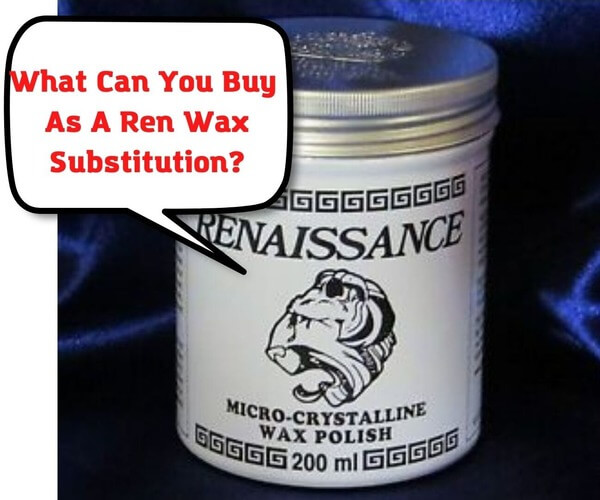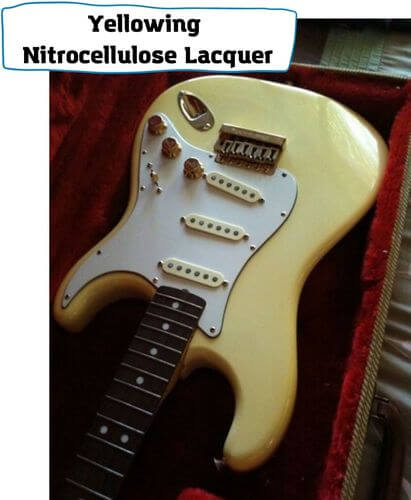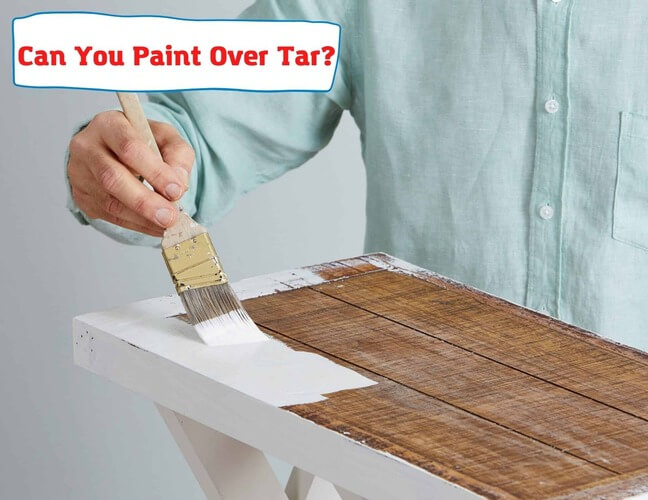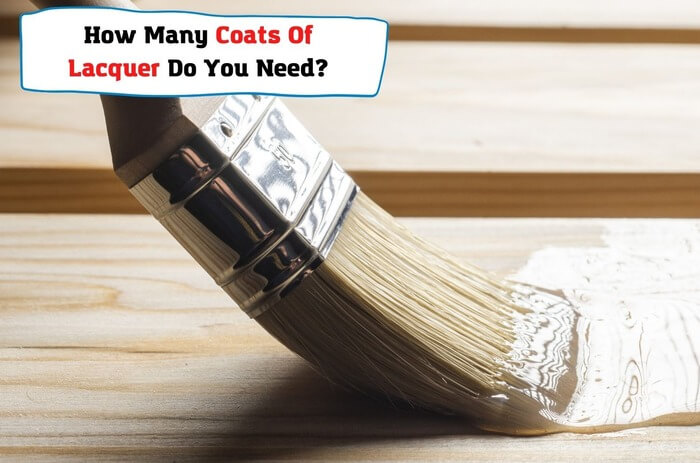Corrosion is the greatest threat to vehicles or metal surfaces in general. The thing is, long exposure to several elements like rain, sun, wind, and snow can lead to fast oxidation of metal that leads to a poor appearance, loss of value, and hazardous safety issues.
Brine, debris, and road salt can cling to the under-bodies of vehicles while eating away electrical connections and metal parts.
A fluid film offers powerful corrosion protection for all metal surfaces and provides superior lubrication for all moving components. Fluid film products are long-lasting liquids and gels that have been used for decades in the highly corrosive environment of offshore drilling rigs and ships.
These days, fluid film has been successfully utilized in the automotive and aviation industries and lawns and gardens. It provides a non-toxic solution for home maintenance. Today, we will delve into the idea of fluid film and its alternatives.
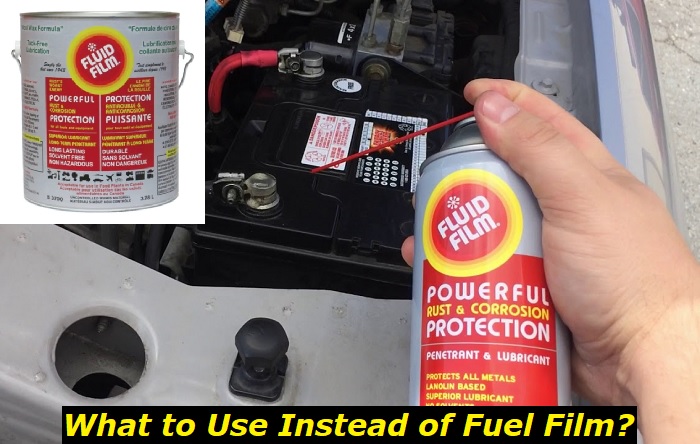
What Is Fluid Film?
A fluid film is a mixture of unrefined wool wax with selective par agents and corrosive inhibitors. It has a unique lanolin-based formation that inhibits existing rust on metal surfaces. It is a lubricant and a penetrative product used for corrosive prevention. Fluid film penetrates the surface and creates a self-healing active barrier that will neither chip nor crack.
It protects exposed metals and vehicle undercoating for an extended time, and it is safe for use on all metals and will less likely harm plastics or paint fluid film.
The fluid film possesses an exceptional lubricating property that penetrates deeply into a metal surface to stop squeaks and provide lasting lubrication for all moving parts. It is electrically non-conductive with a high flash point. It is made with a flexible composition that makes it a perfect choice for electrical connections and battery terminals.
Fluid film products are non-toxic and have been used in various industries and home maintenance. These products have been used in agriculture, gas companies, power plants, municipal plants, manufacturing plants, paper mills, etc. It is versatile, and you can utilize it in daily life.
Fluid Film Alternatives
There are several quality lubricants or under coatings that can be used as alternatives for the fluid film. These alternatives provide adequate lubrication for moving parts and provide rust protection at different levels. Some of these alternatives include;
- Woolwax
- Petroleum-diluted lanolin
- Sunflower oil
Woolwax
Woolwax is an intricate and durable undercoating product that helps reduce further metal oxidation or rust on surfaces. It is made from lanolin, a unique product obtained from a particular breed of sheep.
It is devoid of any solvent, so it can stay without solidifying or evaporating. Woolwax remains wet, and it can creep into the closed inaccessible areas of a vehicle.
Woolwax can be used to remedy problems such as rust around your vehicle’s doors, undercarriage, frame, and other parts. You can prevent damage that results from rust by using Woolwax. It is manufactured with no strong odor, and it is entirely wash-off resistant.
Woolwax is a unique lubricating and undercoating product. It is one of the most trusted undercoating protection brands for most companies. There are fantastic reviews about Woolwax’s ability to meet the needs of users satisfactorily.
How Long Does Woolwax Last?
Woolwax has an indefinite shelf life, so one can’t say it has a specific life span. It is devoid of any solvent and hence cannot solidify or evaporate due to environmental factors.
However, the spray can of the Woolwax has a guaranteed duration of one year. This is because the propellant becomes unstable after a long period. But the spray can is not as tough as the Woolwax content.
Woolwax Vs. Fluid Film
Both Woolwax and fluid film are excellent products made by the same manufacturer. Woolwax is thicker than fluid film as it contains a large amount of wool grease. Fluid film and Woolwax feature different varieties and have a relatively high resistance than most of their counterparts. Generally, they are exceptional in their capacities, but there are slight differences that exist between them.
Differences between Woolwax and Fluid Film
| Woolwax | Fluid Film |
|
|
|
2. It has a relatively average resistance against wash-off |
|
3. It possesses a strong odor |
|
4. It lasts up to 4 years without exposure to climatic factors. |
Petroleum-Diluted Lanolin
Lanolin films provide excellent protection against rusting when applied to iron and steel surfaces. Its coatings are regarded as temporary coatings because they are mainly used for the protection of bright steel parts during transportation and storage, and they can be easily removed.
Lanolin products can give long-term protection compared to other expensive coatings. They provide protection against corrosive agents like acids, bases, and salts.
Petroleum-diluted lanolin soaks into the outside layer of exposed metal surfaces, and it will penetrate any rusted metal below surface level. It slowly reduces corrosion, but it wouldn’t stop it immediately.
A lanolin product known as Rust prevention lanolin lubricant is a highly effective item made with a unique formulation. It is used for long-term corrosion protection on all metal surfaces under climatic factors like extreme humidity conditions.
It is highly resistant to humidity, water, salt, and acid. Rust prevention lanolin lubricant has a thick film that does not wash off or dry out. Lanolin products can be used in the marine, industrial farming, and transport sectors.
Sunflower Oil
Sunflower oil is a common item in cooking, cosmetology, and pharmacology. Generally, It is used in our everyday life. Sunflower oil can be modified in several ways resulting in various molecules synthesizing from it. Synthesized sunflower oil is highly effective in eliminating rusting and gas hydrate.
Sunflower oil soaks well into rust. It polymerizes into a slightly plastic but firm coating. After it polymerizes, it becomes difficult to wash off. When sunflower oil is coated on a metal surface, it forms a protective barrier that exhibits external elements from seeping through.
In a situation where such elements are water, the sunflower oil repels the water present on the metal surface.
Sunflower oil is very thin, and it’ll wear off more quickly than other lubricants or under coatings. It keeps off water and oxygen residues on metal surfaces. Be careful while applying sunflower oil, especially in enclosed moist spaces, because it is most likely susceptible to mold.
Mixing sunflower oil with mineral oil may reduce the chances of mold growth. However, it is recommended to use sunflower oil on the exterior surface to avoid fungal growth.
How Long Does Fluid Film Last?
The fluid film lasts up to three years in average conditions. Most fluid film products are highly durable compared to other undercoating products.
The fluid film can keep locks and seat tracks from freezing, regardless of the degree of the temperature. It is the most trusted undercoating product recommended by many.
Can You Spray Fluid Film Over Rust?
It is safe to say fluid film over the rest of your car or any metal surface. It can stop rust from spreading from one part of your car surface to another though it may not be able to remove the first because it is not formulated for that reason.
Fluid film is formulated to penetrate rust down to the base metal. It helps to ease the rust removal process from external surfaces. If you are dealing with fast-spreading rust on any part of your car surface, it will help if you use fluid film to stop the widespread rust.
Applications Of Fluid Film
– Vehicle Undercoating
Fluid film can penetrate the metal base and provide a long-lasting, protective barrier from the corrosive effect of pesticides, salts, calcium chloride, and fertilizers. It is an excellent undercoating choice as it is cheaper and more effective than other hard-underbody coatings.
The fluid film remains a soft and pliable undercoating that self-heals against metal deterioration. It can locate inaccessible areas while offering a full year of solid protection.
It should be noted that the fluid film may soften some vehicle undercoatings, so it’ll be best to check with the manufacturers for compatibility before purchase.
– Battery Terminal
The Fluid film is electrically non-conductive, so you can easily clean around battery terminals, make connections, and then you can spray with fluid film. It offers a non-drying feature that provides long-term protection in this application.
Fluid film keeps battery terminals from corrosion, and if they are unprotected, they can lead to deterioration which results in an expensive repair. The fluid film can be used as a lubricant for drill lube and injector ring lube.
– Chrome
Fluid film shines and protects all car chrome, such as wheels and rims, and keeps bugs from sticking to the chrome bumpers.
It provides long-term protection in this application because of its known drying feature. Fluid film will also inhibit pitting in other chrome components and protect chrome wheels from dust deterioration.
- How to Fix Rough Concrete Floor? Best DIY Methods - July 10, 2023
- Rotted Door Frame: Repair Kit and Ways to Solve the Problem - June 5, 2023
- Granite Grip vs. SpreadRock: Comparison and Best Applications - April 28, 2023
